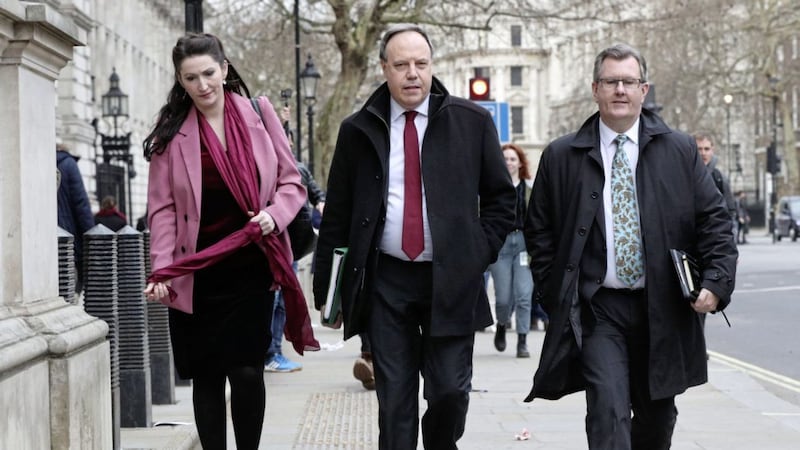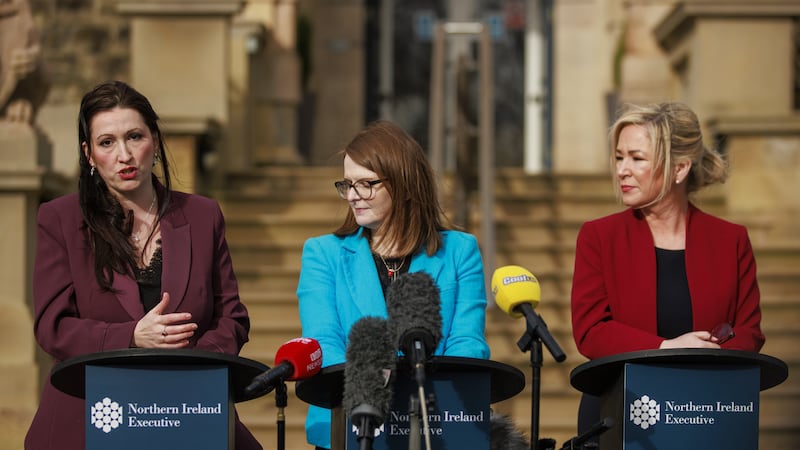THE DUP wants a soft Brexit but does not want to be seen to vote for it.
That is the tragic conclusion to be drawn from its behaviour over the past eight days.
On Wednesday last week, in the first set of indicative votes on the future of Brexit held in the House of Commons, the DUP rejected everything except the two softest options available - effectively, single market membership and single market plus customs union membership - on which it abstained.
It also abstained on supporting no deal.
As if that signal was not clear enough, the DUP publicly split with its hardline allies in the European Research Group over backing Prime Minister Theresa May's Withdrawal Agreement.
DUP deputy leader Nigel Dodds went on air to say he would rather have no Brexit than a threat to the union.
Dodds and party colleagues then spent the weekend setting out that a very soft Brexit, removing any need to activate the backstop, would address any such threat.
On Monday, Sammy Wilson, the DUP's most ardent Brexiteer, said the party would abstain again on the softest Brexit option - customs union and single market membership - when it came before the Commons. Yet five hours later the DUP voted against it.
So what happened in those intervening five hours?
The answer emerged in coordinated party statements the next day, when the DUP reverted to its previous stance that the EU will have to offer a final compromise on the backstop.
Great store was set on German chancellor Angela Merkel twisting the Irish government's arm when she travels to Dublin today.
We have been through this unionist and British hope of Germany riding to the rescue on the backstop many times before but there is method in the DUP's madness of rolling the dice one last time.
The extension to the Brexit deadline means there is another week to go before a final decision on the Withdrawal Agreement has to be made and a week is, of course, a long time in brinkmanship politics.
Until then, the indicative votes are almost bizarrely irrelevant.
They are being held to determine the future shape of Brexit, yet that has nothing to do with the binding aspects of the Withdrawal Agreement and can only undermine brinkmanship on the backstop.
The Withdrawal Agreement is only the UK's divorce settlement.
The future trading relationship - who gets the kids in this analogy - must still be determined afterwards.
That remains the case in any deal, including no deal. The backstop is even more inescapable.
Brussels has declared that in the event of no deal, the first item on the agenda in future trade negotiations will be a guarantee of no hard border - in other words, the backstop.
So holding out for even the faintest hope of a concession on the backstop remains, for one more week, the only show in town.
In many ways, it is remarkable the DUP wobbled enough over the past week to signal it wants a soft Brexit or, in extremis, no Brexit at all.
Having apparently not enjoyed the public and media reaction to this, it has wobbled back to holding the backstop line.
But that has still suffered its own slow-motion wobble since the start of this year.
In January, the DUP switched from demanding the backstop's complete removal to settling for a time limit.
Last month, that was downgraded to any kind of exit mechanism without an EU veto.
Now, the DUP is promoting the so-called 'Stormont lock' against any backstop sea border - an open land border would remain compulsory - despite denouncing this proposal when it was unveiled four months ago as "cosmetic and meaningless".
The DUP's last-minute absolutism is the least convincing of many similar stances across the Commons.
MPs backing a second referendum, for example, reportedly refused to vote for a soft Brexit on Monday in case it proves "too popular".
They are really going for broke. The DUP is just running scared of accusations of weakness.
However, it is going to be put on the spot over a soft Brexit soon enough, deal or no deal.
Will it come out publicly in favour of it then?
Or will it hide behind a Commons majority for a soft Brexit large enough for its 10 MPs to sit on the sidelines, or even pretend to oppose it?
The collapse of Stormont suggests the DUP lacks any courage to own a problem it has done so much to create.
newton@irishnews.com









